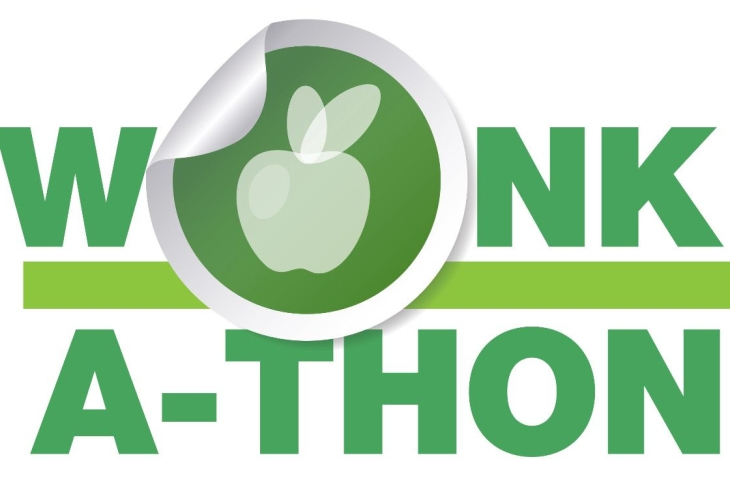Editor’s note: This essay is an entry in Fordham’s 2022 Wonkathon, which asked contributors to address a fundamental and challenging question: “How can states remove policies barriers that are keeping educators from reinventing high schools?” Learn more.
1. Jay Mathews wrote in 2008 about:
“A taboo-busting, eye-widening, troublemaking idea...that if a kid wants to drop out, let him...(It’s) a sort of educational jujitsu, something most anti-dropout schemes ignore:...[quoting me] ‘Many kids that age cannot stand to be in school, no matter how winning the teachers or how understanding the counselors or how high-tech the vocational arts program. They have to get out of there. I am no cowboy, but I seem to have read somewhere that there is no point in getting in the way of a stampede.’”
2. Jay was generous to share my idea in the Washington Post. He didn’t necessarily endorse it! Some edu-commentators labeled it a horrible idea. I get it.
Still, I’m reprising it here, with edits.
3. The problem to solve: Some high school kids cannot freaking stand to be in school. Not any version of school that we currently know, even an alternative school.
For them, a “typical school day” is, on a scale of 1 to 10, a negative 3. They HATE it.
- School for them is like forcing someone who LOATHES swimming into the pool every day, for hours, with no improvement. It’s a minute-by-minute mix of them holding onto the side of the pool and flailing in the water.
- School for them is like being forced to attend music concerts of a type of music you MOST hate.
- School for them is like forcing introverts to go to a loud big party, for six hours, with nobody you know well, every day.
Does anyone really dispute this point?
We can quibble about the frequency. I don’t know if this is 1 percent or 10 percent or 20 percent of high school kids. But it’s a meaningful number.
Moreover, for such a kid, even a superhuman team of teachers and counselors might, in an outlier situation, raise that kid’s 1–10 rating from a -3 out of 10 to a 2 out of 10. That’s a huge gain but nonetheless a sucky outcome.
4. What’s an option for...rich kids who hate school?
They actually have access to a good solution.
Rich kids are less likely for various reasons to think of school as negative 3 out of 10.
But when they do (I don’t always drink beer, but when I do, I drink Dos Equis), rich kids can transfer to 1:1 “all tutoring” private schools, which drop a kid’s hours from roughly six hours per day to two hours per day.
I don’t want to cite specific schools. Such a small dosage of school hours triggers regulatory compliance issues. Just like Uber and Lyft sometimes, shall we say, dance carefully with taxi laws, these private “school” providers have a delicate dance with regulators. I don’t want to get them into trouble by praising them on Fordham blog.
But you can Google them pretty easily, and there’s lots of ENTHUSIASTIC parent feedback. To the best of my knowledge, nobody has ever empirically studied them.
5. So I propose that all kids get what rich kids have: a public option for kids who hate high school to “consume much less high school.”
The pilot program I’m proposing:
a. Allow HS students to choose two hours per day of high-quality tutorial, 1:1 instead of 6 hours of regular school. The six-hour-a-day requirement for school is waived.
b. The condition: Their academic outcomes can’t go down.
For example, an eighth grader who hates school and who was 25th percentile as a full-time student on the state exam would have to, under this pilot, perform at least at the 25th percentile on the ninth grade state exam.
c. Specifically, I’m NOT proposing alternative schools where kids STILL have to show up for six hours, for “something else.” These kids don’t want vo-tech, don’t want a new community, they just don’t want anything that looks like a school setting.
d. What about the “other four hours of the day”?
I know a policy instinct would be to force-feed these kids “community service” or some other way to fill their time.
Gee. I don’t see that going well. I’d certainly encourage volunteerism, but I’d say let kids do what they do the other 185 days of the year unencumbered by school: some mix of part-time work, doing stuff at their homes, being online (sadly), socializing, chores, fun stuff, etc.
e. Does this work financially?
Boston Public School and Boston charter school per student spending is currently about $25,000/year.
If a student had two hours per day of tutoring for a 180-day school year, and the state paid a professional tutor $50/hour, that’s 360 hours per year at $50/hour, or $18,000.
A full-time tutor would earn ~$100,000/year, slightly less that average Boston district salaries and slightly more than Boston charter salaries.
I’d allocate the “other $7,000” into an Education Savings Account, whereby the student might get fitness training, music or art or dance lessons, take online classes of interest, and so forth.
Obviously, different cities would adjust tutor salaries to fit their very different cost-of-living and per pupil spending.
f. The measurement I’m proposing: Run this pilot as a randomized control trial among high schoolers who self-identify as hating school and seeking this option.
Measure every possible academic, social, emotional, mental health outcome. Hard and soft. Capture views of former teachers (i.e., the seventh and eighth grade teachers willing to do follow up observation with a ninth grader on this plan). Capture parent view. Measure earnings long-term impact. Measure civic participation ten years later.
Also explore the residual benefit, if any, to the traditional school they’d otherwise have attended but hated (seems plausible that not just the “treated” kids end up better off, but the teachers and peer students are better off without kids who HATE school being in their school).
—
What do you think? For kids who say they despise school, whose teachers agree they despise school, and whose parents agree they describe school—could states allow them to, if kid and parent want, get 2 hours of tutoring a day instead of 6 hours of class?
My wild guess overall: Some schools are pretty good and some tutoring is the same; some schools are meh and worse and some tutoring is the same; and they probably exist in roughly the same proportions.
So loosening minimum-seat-time requirements would not, in my mind, be conditional on tutoring quality being excellent, merely tutoring quality being safe and professional.

